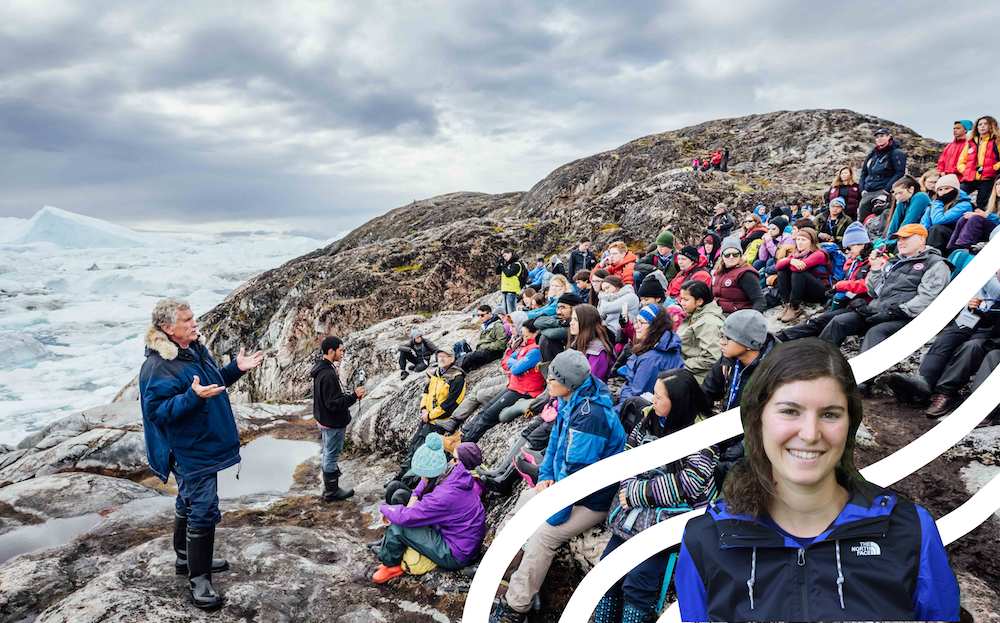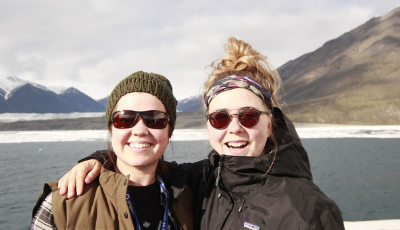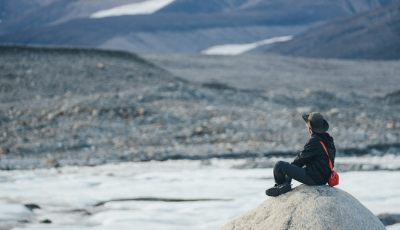The Arctic is warming faster than anywhere else on the planet. Dr. Brendan Kelly discusses what this means and the importance of scientists, Indigenous Peoples and youth in this changing environment. Tune in to join the discussion with host and SOI alum Julia Trombley.
This interview is part of a new educational series called Channel 49, made possible with support from the U.S. Embassy in Canada.
Channel 49
Thanks to support from the U.S. Embassy in Canada, Channel 49 will feature industry leaders and youth discussing the Arctic, the social and environmental challenges and opportunities it faces, and innovative ways Canada and the U.S. are working together towards bilateral cooperation in the Arctic.
This is an opportunity for youth to learn and engage in important Arctic dialogue and initiatives.

About Brendan Kelly

Dr. Brendan Kelly has studied marine ecosystems, primarily in the Arctic, for over four decades. His studies of ice-associated marine mammals benefitted from close collaborations with Indigenous hunters, scientific colleagues, students, and some very smart Labrador retrievers. He has led national and international efforts to understand and respond to climate change including as a professor at the University of Alaska Fairbanks and as Assistant Director for Polar Science in President Obama’s Office of Science and Technology. Dr. Kelly received degrees in Biology from the University of California Santa Cruz (B.A.), the University of Alaska Fairbanks (M.S.), and Purdue University (Ph.D.).
About Julia Trombley

Julia Trombley holds a B.A.S. in biology and philosophy from the University of Guelph, where she completed her fourth year independent project on knowledge sharing between citizens, policy makers, and researchers with respect to the changing Arctic environment. She is an alumna of the 2017 Students on Ice Arctic Expedition and has directly supported youth participants of the 2019 Arctic Expedition in her former role as the Expedition Intern. Julia has served on Students on Ice delegations at the National Youth Reconciliation Conference and the Arctic Futures 2050 Conference. Drawing on her varied experiences with youth and the environment, Julia has also been a facilitator of youth-driven environmental policy recommendations and has led a youth literacy program in Nunatsiavut.
DISCOVER MORE
How to meaningfully participate in conservation as a young person
Being a young person trying to break into the conservation world can be intimidating. While there are many opportunities out there, a lot of youth...
How to meaningfully participate in conservation as a young person
Being a young person trying to break into the conservation world can be intimidating. While there are many opportunities out there, a lot of youth...
Climate Action Cohort Reflections
Focused on building climate leaders, the CAC brings together 10 Canadian youth alumni each year to bridge the gaps between policy decisions,...



